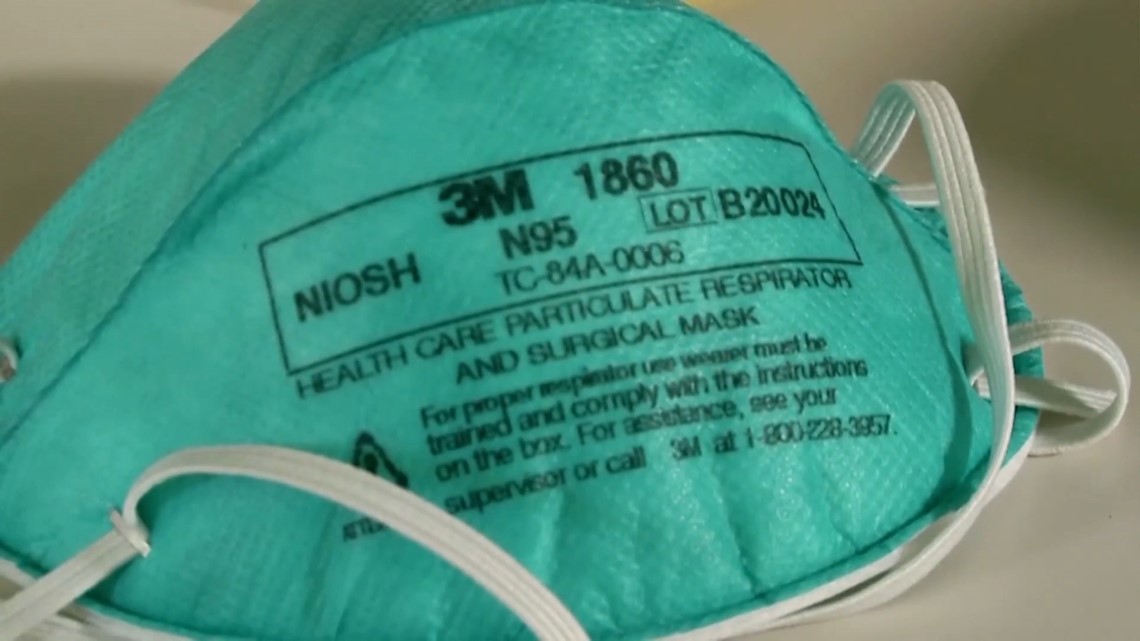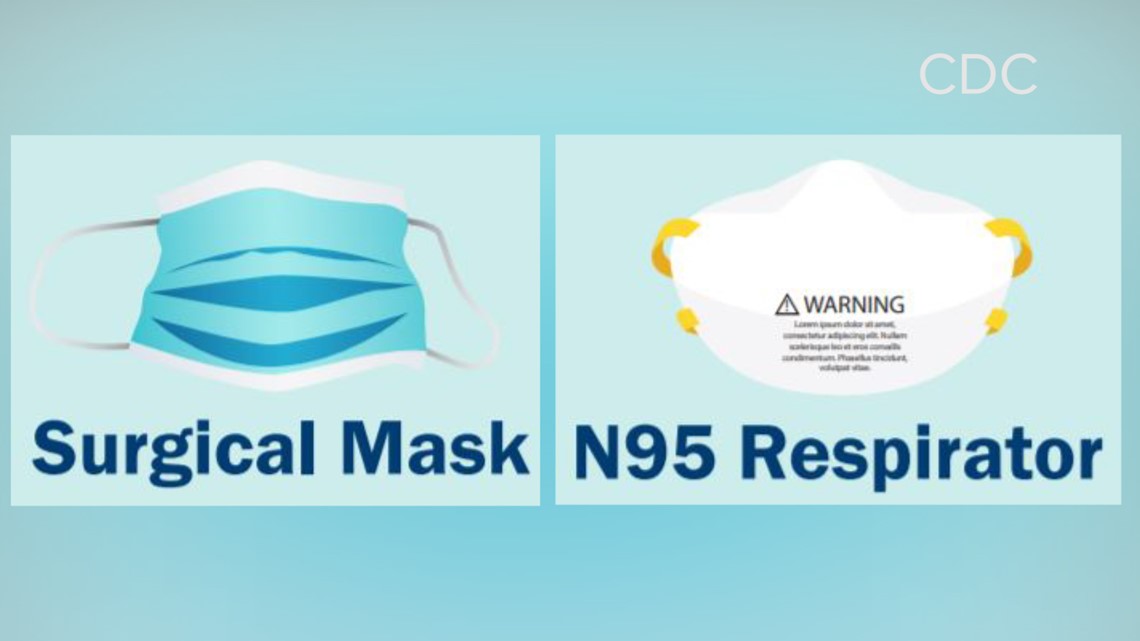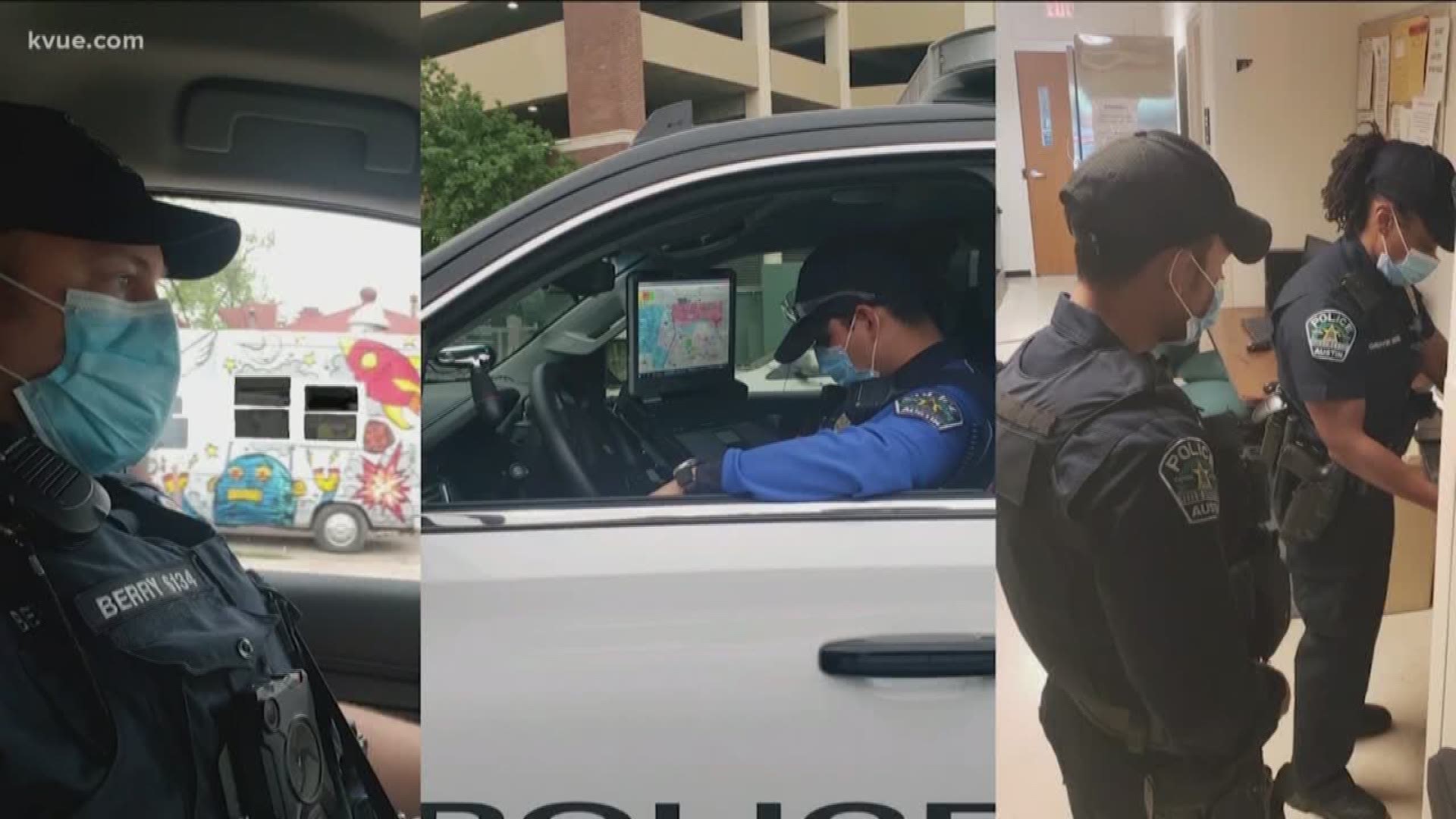AUSTIN, Texas — Nationwide, the coronavirus pandemic has created a severe shortage in personal protective gear.
While state leaders try to replenish those supplies, KVUE discovered first responders with Austin Police Department and Austin-Travis County EMS were provided expired gear, specifically N95 respirators.
Guidelines set by the CDC approved usage of expired respirators during a severe shortage as long as the respirators, also commonly referred to as N95 masks, follow safety standards.
This includes inspecting each mask for any degraded material, which may affect the effectiveness of the mask. Also, users must be notified if their mask is expired.
Finally, if the seal is compromised, the masks should not be distributed.
According to a statement APD provided KVUE, the department's masks are compliant with those CDC guidelines.
"The health and safety of our employees and the community are paramount. During this crisis, we are in constant communication with our health professional partners. We also update our procedures as new guidance comes out from the CDC," the department said.
RELATED:
ATCEMS Commander Michael Benavides also confirmed his department uses some expired N95 masks.
"Our expired N95 masks were purchased well in advance of the COVID-19 event (Fall of 2014), in a large quantity, specifically for a pandemic event such as this or a heavier than expected flu season, and have remained in storage in a climate-controlled, secure warehouse," he told KVUE.
The masks expired in September 2019. The department's safety office inspected them before they were handed out.
Finally, Benavides added that while some of the product is expired, they are still a single-use item for them and are not being “reused.”
"Following CDC guidelines, the N95 even if expired, (provided it has not degraded or gotten wet) does provide substantially more protection for healthcare professionals than the protection of a simple face mask," Benavides said.


However, if first responders are concerned about the quality of their N95 respirator, Dr. Emily Briggs, a full scope family physician in New Braunfels, recommended first responders also perform their own seal check.
"When you are breathing in and out, you should not have air escaping around where that mask is touching your face," Briggs said.
The CDC also breaks down guidelines for when a mask should be discarded, including if the mask is used around aerosol-generating procedures or in around a COVID-19 patient (aerosolized refers to a tiny moisture molecule or spray), or if it comes in contact with blood or bodily fluids.
On Tuesday, April 21, Gov. Greg Abbott announced approximately 4.8 million more masks were distributed to health care workers and first responders across the state.
Benavides said ATCEMS had the opportunity to secure a small number of N95 respirators, but since they were "well-stocked," they did not request any.
"This decision also allowed others in the region with potentially more need to receive more supplies," he said.
Had the department received the shipment, Benavides said they would continue to use the expired, yet approved respirators, and put the new ones in the back stock.
"This approach allows us to use the oldest respirators first and cache the back stock for any possible resurgence," he said.
The APD said based on how quickly their masks are being used, as well as receiving new shipments of masks, their supply will last too.
As a physician, Briggs said in most circumstances, a surgical mask is sufficient over N95 masks.
"They can provide droplet precautions and it's what we need in most situations," she said.


A droplet is larger than an aerosolized molecule. N95 respirators are necessary to protect against aerosolized molecules. A cough or a sneeze typically produces a droplet, Briggs said.
“When we see people in the grocery store wearing an N95 mask, that’s really not appropriate for the need," she said. "N95 masks should be saved for healthcare workers."
As a further safety precaution for the public and their officers, APD also requires officers to report their temperature before every shift.
PEOPLE ARE ALSO READING:

